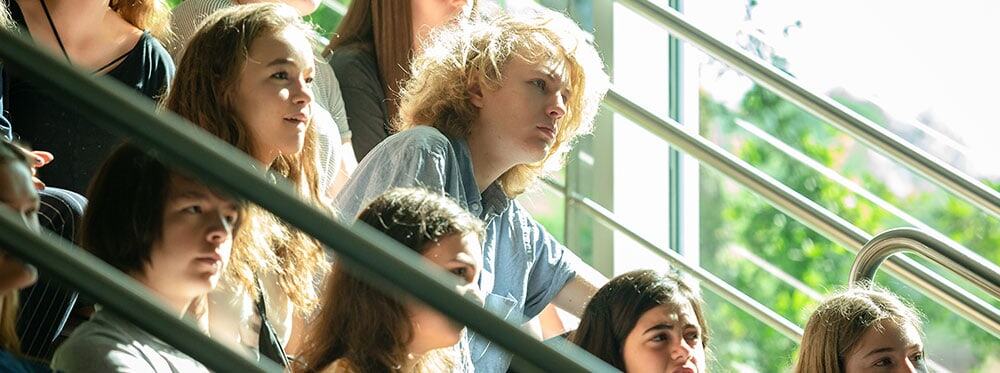In August 2020, James MacDonald moved to Brussels with his family to take up the position of Director at the International School of Brussels . Looking back on his first six months at one of the world’s most well-respected international schools, James considers the importance of choosing the right school for your child in a city that is spoiled for choice.
The changing landscape of international education
As an educator for the majority of my professional career – working in schools in my native Canada, as well as in Singapore, Japan, Thailand, and the UAE – I have had the opportunity to see first hand the growth of international schools around the world. And while each region of the world is different, I am convinced that there are essentially two main reasons why parents opt to send their children to an “international” school. First, they are globally-mobile expatriates and looking for an English-speaking school for their children, that will allow their children to transfer smoothly into other schools, career pathways or universities after leaving ISB . Alternatively, they may be local families who are looking to opt out of a national system, perhaps in search of a different approach to learning or a school that provides pathways to higher education in other regions of the world.
Belgium as a hub of internationalism and educational quality
In a recent market intelligence report by ISC Research, it was reported that international education in Belgium makes up around 1% of the world’s annual tuition fee income, which is not surprising given that Belgium is such an international hub. In the post WWII period era, the International School of Brussels (then known as the American School of Brussels) first opened its doors in 1951 and was eventually followed by a number of other schools, providing a range of choices for families living in and moving to Belgium.
One of the consequences of this level of choice is that there is no doubting the quality of education that many of the schools continue to offer. However, it is important to always confirm that a school is accredited by an international accrediting body to be sure that all aspects of life and learning are reaching internationally agreed standards.
Beginning with what’s important for you and your family
When it comes to choosing the right school for your child, it sounds like a cliche but, in the end, it really is about “fit”. Every child is unique, with different ways of being intelligent, so it is really important to look beneath the glossy marketing headlines and think carefully about the kind of learning environment that is going to ensure that your child can flourish – personally, socially, and academically.
Each year, more than 500 families visit our school. Our goal is not to throw information at them, but to listen to what is important to them in choosing a school. And not just the parents! The children are also encouraged to be a part of this process. For some, the decision turns on the programmes that are offered or the resources that are available to students. For others, the location, fees or educational philosophy could be equally important. For example, ISB is not going to be a good fit for parents seeking a more traditional type of education with students sitting rows and teachers narrowly focused on standardized tests targets. In the end, it is always important that the family is able to come to a decision that is in the best interest of their child. Even if that is a decision not to apply to ISB!
Balancing the destination with the journey
Whether your child is 8 or 18, at least part of your decision-making will be influenced by the kind of future that a school will open up for your child. How will she perform under the pressure of examinations? Will she gain access to the right university or course of study? Or, in the end, will they go on to live a happy, successful, and ethical life? A good school will always bear the destination in mind. But a great school will go further and also reflect on the experience of being a student, balancing the destination with the journey. A great school will focus on more than academic achievement by itself, creating opportunities for exploration, growth and wellbeing.
The ultimate proof is in the alumni
I have worked in schools around the world and now am fortunate enough to be here in Belgium . In every one of these schools, parents have asked me the same question: how do you really know whether a school is good or not? In the end, once you have considered the programmes, the resources, the quality of the teachers, and the feeling you get when you walk around campus, one idea is always to ask the admissions team what their former students look back and say about the school. Their answers will often reveal far more than what any website or brochure can reveal.
James MacDonald is Director of the International School of Brussels .

